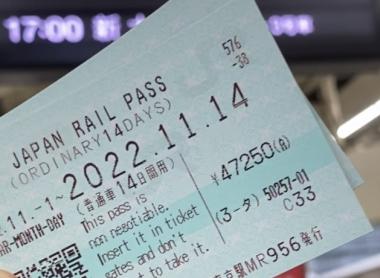JRP Carbon-free Project

Making train travel in Japan more sustainable
As an organization that promotes travel and transportation, Japan Experience understands the importance of off-setting the carbon footprint they introduce. We are committed to creating a more sustainable travel industry.
Through the JRP Carbon-free Project, Japan Experience and the travelers we serve can contribute to the efforts against CO2 emissions and climate change. JRP Carbon-free project will allow those who are traveling via Japan Experience to make a monetary contribution added to the purchase of a Japan Rail Pass voucher.
* It’s an estimation based on the cubic metre of wood absorbs just under a ton of CO2.
How can you help?
JRP Carbon-free serves as an add-on to a National Japan Rail Pass voucher.
Travelers can support this project by adding their contribution to their order. It costs only 5€ per JR Pass.
The cost of planting and maintaining one Quercus Pin Oak Tree on this plot of land costs approximately 20,000 yen (151 USD). Funds gathered from this source will be calculated, and for every 20,000 yen, one tree will be planted. The amount received via these contributions will stack up quickly, especially for larger groups or families who will be traveling with Japan Rail Passes, so travelers can rest-assured that their contributions will be fruitful almost immediately.
Tourism for tomorrow
In accordance with Japan’s Sustainable Development Goals (SDGs) and in collaboration with Nippon Travel Agency and Japan Rail Group, we are excited to participate in the “Carbon Off-Set Plan,” via the JRP Carbon-free, a campaign centered around people, environment, and culture.
How are we making a difference?
Our ongoing projects
With this initial campaign for sustainable tree-planting in Nagano, Japan Experience looks forward to instituting further projects to maximize the off-setting of carbon emissions that serve as an unfortunate side-effect to the beauties of travel and culture.
At the moment, other plans to contribute to protecting Japan’s environment are in the works. Please take a look at what the future holds for the JRP carbon-free project:




